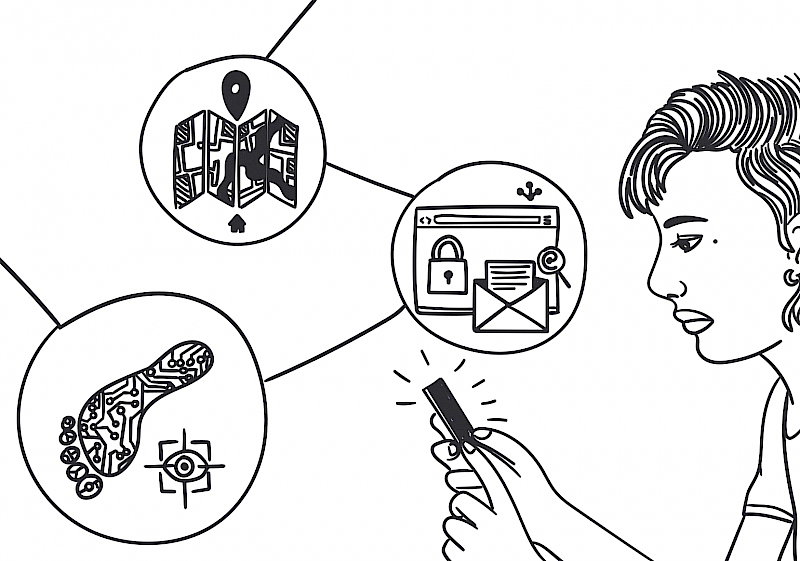
Keeping Secrets Online
This project synthesises new knowledge that is useful to those who support people keeping secrets legitimately as part of their job and enhances the UK’s capacity to detect and mitigate threats generated via online channels. Online secret-keeping offers a rich seam of inquiry: the lack of non-verbal signals in this environment is known to be used strategically for effective deceit.
The research is sourced from disciplines as diverse as Human-Computer Interaction, Gender Studies, Cyberpsychology, Health, and Crime. It uses three example scenarios in understanding how people keep secrets online: buying and using illegal drugs, escaping from intimate partner violence, and having an illicit affair. Each of these has quite different goals and associated activities and helps us to uncover a diverse range of strategies for keeping secrets online.
This research is distilled into an ‘Illustrated Guide to Keeping Secrets Online’ that summarises the findings in an easy-to-read format, made up of narratives supported by illustrations, research insights, and potential real-world applications for stakeholders. This guide is useful to stimulate discussion and to generate further knowledge on how the strategies, barriers, and enablers uncovered by our research can be applied to people who need to keep secrets as part of their jobs in countering UK and international security threats.
Project resources
Academic Publications
An evidence synthesis of strategies, enablers and barriers for keeping secrets online regarding the procurement and supply of illicit drugs
This systematic review attempts to understand how people keep secrets online, and in particular how people use the internet when engaging in covert behaviours and activities regarding the procurement and supply of illicit drugs.
With the Internet and social media being part of everyday life for most people in western and non-western countries, there are ever-growing opportunities for individuals to engage in covert behaviours and activities online that may be considered illegal or unethical.
A search strategy using Medical Subject Headings terms and relevant key words was developed. A comprehensive literature search of published and unpublished studies in electronic databases was conducted.
Additional studies were identified from reference lists of previous studies and (systematic) reviews that had similar objectives as this search, and were included if they fulfilled our inclusion criteria. Two researchers independently screened abstracts and full-texts for study eligibility and evaluated the quality of included studies. Disagreements were resolved by a consensus procedure. The systematic review includes 33 qualitative studies and one cross-sectional study, published between 2006 and 2018.
Five covert behaviours were identified: the use of communication channels; anonymity; visibility reduction; limited posts in public; following forum rules and recommendations. The same technologies that provide individuals with easy access to information, such as social networking sites and forums, digital devices, digital tools and services, also increase the prevalence of inaccurate information, loss of privacy, identity theft and disinhibited communication.
This review takes a rigorous interdisciplinary approach to synthesising knowledge on the strategies adopted by people in keeping secrets online. Whilst the focus is on the procurement and supply of illicit drugs, this knowledge is transferrable to a range of contexts where people keep secrets online. It has particular significance for those who design online/social media applications, and for law enforcement and security agencies.
(From the journal abstract)
Aikaterini Grimani, Anna Gavine and Wendy Moncur, 2020. An evidence synthesis of strategies, enablers and barriers for keeping secrets online regarding the procurement and supply of illicit drugs. International Journal of Drug Policy. https://doi.org/10.1016/j.drugpo.2019.102621